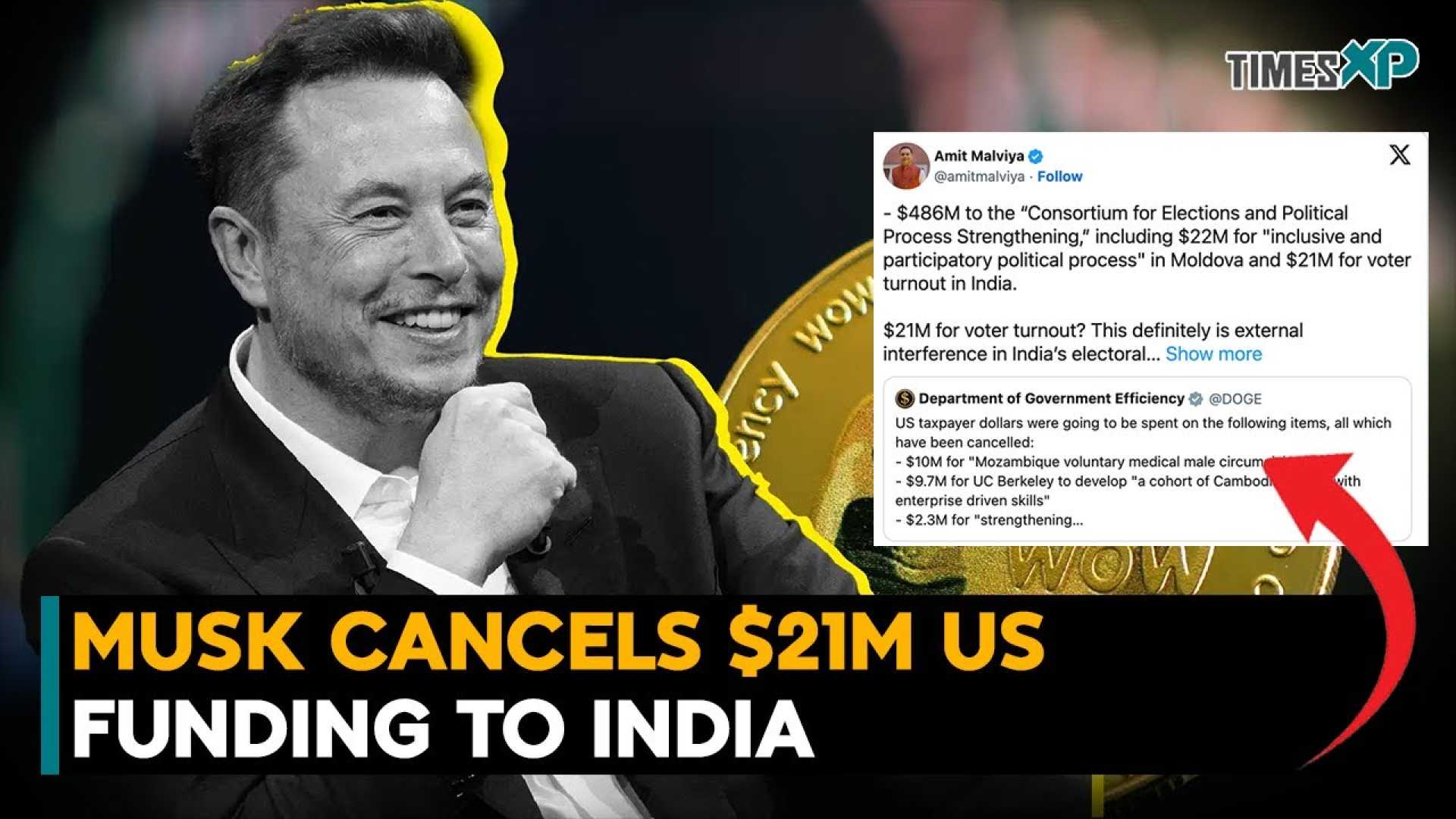Politics
US Cancels $21M Voter Initiative in India Amid Controversy

New Delhi, India — The U.S. Department of Government Efficiency (DOGE), led by Elon Musk, announced on February 16 that it has cancelled a $21 million grant intended to improve voter turnout in India. This decision is part of a broader initiative to cut foreign aid and streamline government spending, which has raised significant concerns among Indian politicians regarding potential external interference in the country’s electoral process.
The funding was originally part of a $486 million budget allocation for the Consortium for Elections and Political Process Strengthening (CEPPS), which aimed to enhance democratic processes in several countries, including India and Bangladesh. Other proposed projects set for cancellation included $29 million for political stability in Bangladesh and various health initiatives.
BJP national spokesperson Amit Malviya condemned the cancellation, stating, “$21M for voter turnout? This definitely is external interference in India’s electoral process. Who gains from this? Not the ruling party for sure!” Malviya’s remarks came amid allegations that foreign entities were attempting to influence Indian politics.
The political tensions have been exacerbated by a history of skepticism towards foreign funding of Indian electoral operations. Malviya accused previous administrations of allowing systematic infiltration by foreign forces, particularly targeting organizations linked to billionaire investor George Soros. The BJP claims that such funding undermines India’s sovereignty and election integrity.
In a related discussion, Rajeev Chandrasekhar, a BJP MP, criticized the opposition Congress party for its complicity in permitting foreign engagement in Indian governance. Chandrasekhar stated, “This action reinforces the belief that almost all these ‘protests’ had external funding and puppetmasters behind it. We should investigate the money trail in India fully.”
The situation escalated following remarks from former Chief Election Commissioner S.Y. Quraishi, who defended the 2012 Memorandum of Understanding signed between the Election Commission of India and the International Foundation for Electoral Systems (IFES), which is tied to Soros’s Open Society Foundation. Quraishi stated that no funding was involved and that the MoU was strictly for training purposes.
In response to the ongoing controversy, the Congress Party has criticized the BJP for making unfounded allegations. Party spokesperson Pawan Khera argued, “By their logic, the Congress party sabotaged its electoral prospects in 2012 by allowing this funding. If the BJP believes external funds played a role in elections, what does it say about their internal political strategies?”
The cuts to international aid are part of a broader trend under the current U.S. administration, as officials aim to prioritize domestic issues over overseas commitments. Since President Donald Trump resumed office on January 20, DOGE has systematically assessed and cut various foreign assistance programs perceived as wasteful.
While the DOGE has not provided further details on the criteria for the cancelled projects, the decision reflects a significant shift in U.S. foreign policy priorities. This sudden withdrawal of support has sparked protests in the U.S., with demonstrators expressing concerns over the implications for democracy and governance in recipient nations.
As this development unfolds, the ramifications for India’s upcoming elections remain unclear, raising questions about how this removal of funding will affect voter engagement strategies. India’s election commission has yet to publicly comment on the situation.












